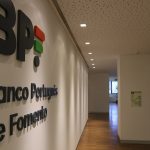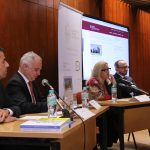Portugal to be hit by 10% baseline tariff and 20% reciprocal tariffs on exports
Last year, Portugal’s exports to the US stood at around €5.4Bn, making the country the most important single exports destination for Portuguese goods and services after the European Union.
Its main exports included pharmaceutical products, mineral fuels, oils, distillation products, rubbers, and electrical and electronic equipment.
It was a record, rising from just under €3Bn in 2013 and more than the €4.8Bn posted in 2023 according to figures from Comtrade.
Portugal is one of the countries that is running a trade surplus with the US, and therefore one of the countries that have been “foreign cheaters” that have “looted, pillaged, raped, and plundered” the US in the words of Donald Trump on ‘Liberation Day’ on Wednesday.
Portugal’s exports to the US totalled €2.61Bn in 2024 which included mineral fuels, oils, and distillation products (US$1.44Bn), oil seed, oleagic fruits (soybeans), grain, seed and regular fruits (US$190.79 million), electrical and electronic equipment (US$134.91 million) and machinery, nuclear reactors, and boilers (US$109.86 million).
Other US exports to Portugal included aircraft and spacecraft, chemicals, agricultural and related products.
The relationship has been good for Portugal, leaving her with a positive trade balance of €199 million.
The problem now is how will Portugal be able to face the coming trade war. Turning to China as a destination for goods and services might be one answer, but risks upsetting Portugal’s relationship with the US that has been carefully crafted over the past five years through entities such as the Portuguese embassy in Washington, its consulates in Boston, Newark, New York, San Francisco, New Bedford, and Providence, as well as the American Chamber of Commerce in Portugal (AmCham) and the Portugal-US Chamber of Commerce in New York, not to mention the various offices in the US of Portugal’s overseas exports and FDI investment bureau AICEP in Chicago, New York, and San Francisco.
China, foreseeing the tariffs, had already announced through its ministry of Foreign Affairs that it would seek to forge a closer trading relationship with Portugal during a visit by Paulo Rangel, Portugal’s minister for Foreign Affairs to Beijing and Macau just over a week ago, something that the US would be unhappy about if it entailed areas such as technology and telecoms.
Reacting to the ‘Liberation Day’ tariffs announced by the White House on Wednesday, Portugal’s Minister of the Economy, Pedro Reis said that the Ministry of the Economy is to set up a working group to look at the increase in the tariffs.
The minister in the caretaking government said that Portugal was already “outlining support measures with help from Compete (European funding) and Portugal’s development bank, Banco de Fomento to buffer Portuguese companies to withstand the escalating tension in trade exchanges.
In an interview with CNN, Antena 1 and Radio Observador, Pedro Reis revealed that he had been working behind the scenes to raise awareness, but now, along with other EU partner countries, he will make his contacts with companies and associations more public.
To support the most affected sectors, “new informative notices are being designed under Compete,” said Pedro Reis. “And the Banco de Fomento will provide support through guarantees and financing for industrial equipment and the reinforcement of internationalisation.” “That’s where we have to go,” added the minister of the Economy.










